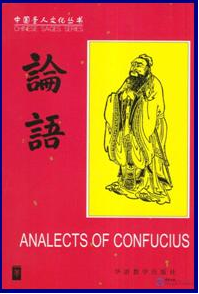SEEING IS BELIEVING
WRITTEN BY: CHEW WEI GUAN
Seeing is believing
An article by Ken Chew
What you see is what you get. Most of the time this statement is true and real but from real life experience, we know that this is not absolute. What is real and visible is most of the time intended by someone. What you want others to see, you will show it. From this angle, you will be able to appreciate the first graph presented after collating the results when conducting DISC.
The first graph of DISC is term as a mask. From Dictionary.com, it states that a Mask is anything that disguises or conceals; disguise; pretense. So in our context, it will mean the outward representation of ourselves that we want the world to see. Most of the time, this is closely knitted to the expectations of others on oneself. When you are completing the selection of the words that most describe you in a given situation / setting, it is inevitable that subconsciously one will choose the word or phrase that they are expected to choose and be in.
So the significance of knowing more about this Graph 1 will help to identify the conflict and struggle the person has as it is compared to his Private and Perceived Self. Graph 2 shows the Private Self. It is derived from the selection of words / phrases that describe oneself the least in a given situation / setting. In this area, it is also inevitable for one to choose instinctively as it is easier for one to choose what is not them than to choose what is them. Most of the time when a person is asked to describe him / herself, it is very natural for one to feel tongue tied and ended up saying things that the people around wants to hear, otherwise one will start to give those in between answers that does not have a stand and clarity.
If Graph 1 is significantly different from the other 2 graphs, this means that the person is trying to adept to the situation to meet up to the expectations of others. On the other hand, if the Graph 1 is similar to the other 2 graphs, it means that the person is in a comfortable and stable environment where he / she is able to be themselves and still meet the expectations of others.
Case study:

Graph 1: It shows that this person is a very assertive and proactive person. He is very adaptable and vocal. He will be very used to sharing about his dreams and ambition. Primarily a Task Oriented person but he can be very persuasive in getting people to work instead of just giving orders. He is one who needs little motivation from others. He is driven largely by his / her ambition and dreams.

Graph 2: It shows that when the person is stress, his focus change from being task oriented to being people oriented. The person will interact and his attention to details diminishes drastically. A possibility is that when things become stressful, the person will turn to be more persuasive and try to influence the people around him / her to get things done. He / she will probably enjoy the adrenaline of Last minute task or urgent matters that requires immediate remedy. Besides this, he / she will probably enjoys the victory of doing things differently and achieving results and most of the time, such ideas are generated at the 11th hour.

Graph 3: It is a confirmation of the person’s real-self for its similarity between Graph 2 and Graph 3. This graph is derived by getting the difference in the results from Graph 1 and Graph 2. However, in this 3rd graph, the higher “C” would signify that the person will exhibit more accuracy and detail oriented under normal circumstances.
From this example, if we do not know the person deeper, we might assume that the person is a slave driver and when he wants to do things his way, he will do all he can to persuade you. However, if we understand the person better, we will realize that the person probably is going through some changes and he is acting out what he assumes is expected of him.
Another possibility is the person has very high self awareness that he / she is capable of manipulating his / her behaviour to suit the environment and fulfill his / her expected behaviour. However, under stress, the person will still inevitably switch to his / her most natural or comfortable traits. Hence, explain the discrepancy.
So, is seeing really a reality? That might not be true in some circumstances. As mentioned earlier, under most circumstances, people always bear the intention to show his / her best front and whenever such intention is present, what is real will already be camouflaged. A metal pole can look sturdy but you will not know if there is any crack inside of it until you send it for x-ray, or cut it open to see.
Hence, before we are to make any judgments or decisions, we will need to unpeel what is on the surface to get to the root of it in order to get the facts of reality.







